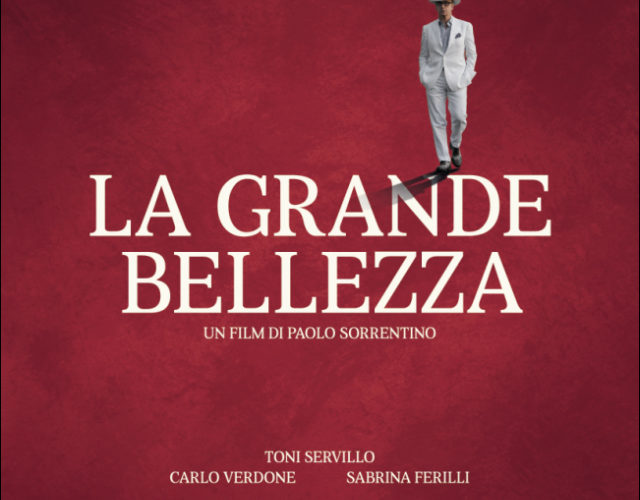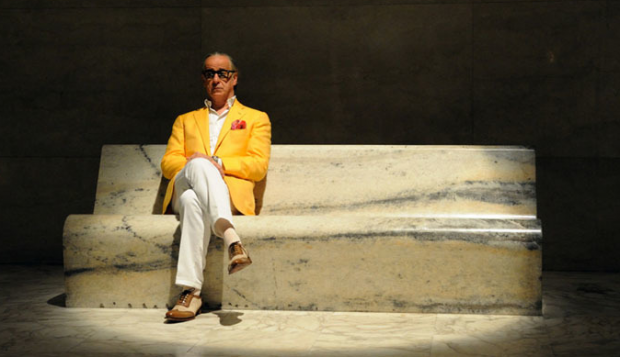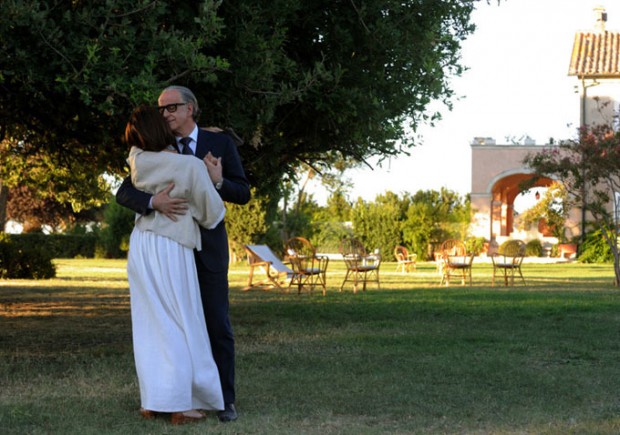Having directed Il Divo, Paolo Sorrentino is no stranger to extravagant Italian filmmaking that packs a punch of bravado and boldness. With La Grande Bellezza (known in English as The Great Beauty) he may be channeling this aesthetic on overdrive, creating a vast tapestry of Italian elitism that is both breathtaking and audacious in its vision; featuring a vast array of characters — including politicians, artists, social climbers, aristocrats, and intellectuals — the wide variety of personalities are, on their own, as fascinating as they are overwhelming. Balancing all these elements — including high-value production design and fashion straight off the runway — and wrapping them in a virtuoso package is a daunting challenge which, for the most part, Sorrentino pulls off. With the feeling of a modern-day Fellini picture, La Grande Bellezza proves an opulent tale of life, love, and loss set against the backdrop of beautiful Rome.
Sorrentino opens with a dizzying overture: fast moving crane and dolly shots as an Italian choir of schoolgirls sing over the image of multiple Japanese tourists taking photos at various noted landmarks. As the prologue crescendos, a tourist drops dead from a heart attack and we have our first signs of a reoccurring existential theme that runs throughout: death can be creeping around the corner at any moment. The film then transports to a lavish birthday party where we meet every character model in one exuberant extended dance scene. The birthday boy is our main character, Jep Gambardella — played with cool chic by Toni Servillo, the type of actor who’s become synonymous with this style of exorbitant Italian film — an art critic and one-time novelist who casually wanders through life spouting eloquent verbal diatribes as if it was second nature.
Despite appearing to have it all and living the life only some could even dream of, Jep cannot escape the ennui that beats inside his heart. For when Jep was a young man, he encountered the greatest beauty of his life, never since finding someone or something as magical. Progressing from that point forward with poetic dialogue, flowery scenarios, and Sorrentino’s kinetic visual stylings, the film starts to feel like a dream as Jep’s journey through life fills with unexpected encounters. If anything, this is where a problem sets in: the whole experience may feel too inclusive to this brand of Italian culture, the extent of which can easily alienate foreign audiences unfamiliar with its included attitude.
There is also a certain flow one must swallow in order to keep up with Jeb’s lifestyle and Bellezza as a whole, compounded by most scenes overstaying their welcome. Sorrentino could benefit from a more breezy pacing; with a bit more self-restraint, the film might have been a masterpiece, but, in its current form, it is far too indulgent for its own good. Yet fans of this type of Fellini-esque extravaganza will certainly find moments to appreciate, possibly even ones they’ll consider brilliant.
Unusually unique, La Grande Bellezza is a cinematic experience that is brimming with energy and lyricism despite its occasional delusions of grandeur.



